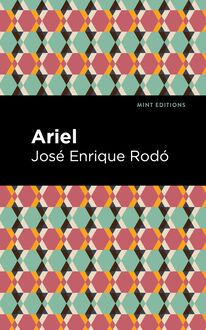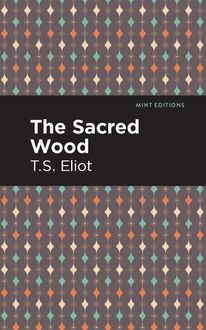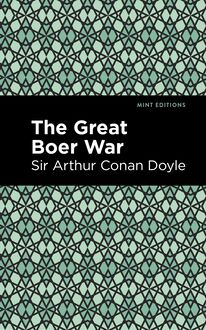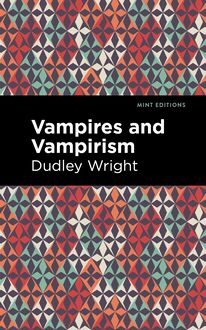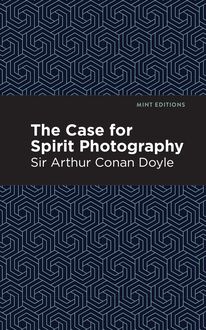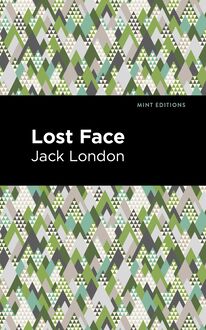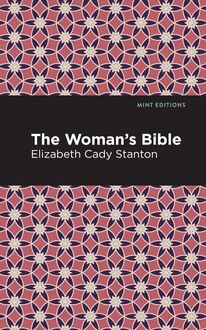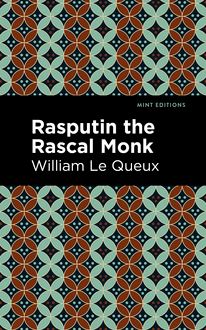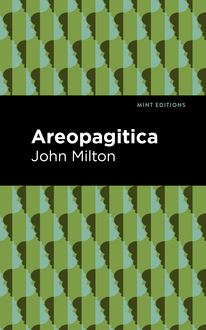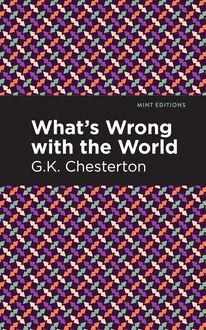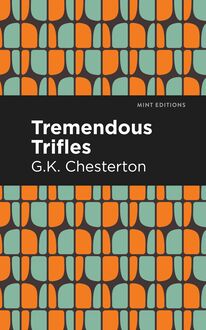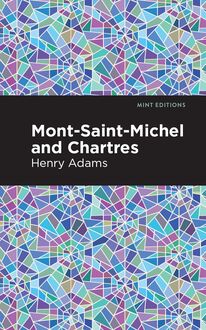-
 Univers
Univers
-
 Ebooks
Ebooks
-
 Livres audio
Livres audio
-
 Presse
Presse
-
 Podcasts
Podcasts
-
 BD
BD
-
 Documents
Documents
-
- Cours
- Révisions
- Ressources pédagogiques
- Sciences de l’éducation
- Manuels scolaires
- Langues
- Travaux de classe
- Annales de BEP
- Etudes supérieures
- Maternelle et primaire
- Fiches de lecture
- Orientation scolaire
- Méthodologie
- Corrigés de devoir
- Annales d’examens et concours
- Annales du bac
- Annales du brevet
- Rapports de stage
La lecture à portée de main
Vous pourrez modifier la taille du texte de cet ouvrage
Découvre YouScribe en t'inscrivant gratuitement
Je m'inscrisDécouvre YouScribe en t'inscrivant gratuitement
Je m'inscrisEn savoir plus
Vous pourrez modifier la taille du texte de cet ouvrage
En savoir plus

Description
Ariel (1922) is an essay by José Enrique Rodó. Originally published in Spanish in 1900, Ariel was translated into English just five years after the author’s death by F. J. Stimson, the former U. S. Ambassador to Argentina. The essay was immediately influential in Uruguay and across Latin America as an essential document of modernismo, a literary movement which sought to unite classical values and contemporary culture through a devotion to beauty and form. “The gifts of the youthful spirit—enthusiasm and hope—correspond in the harmonies of history and natural history to movement and to light. Wherever you shall turn your eyes you will find these, the natural atmosphere in which move all things that are strong and beautiful.” Captivated by a bronze statue of Ariel from Shakespeare’s The Tempest, a teacher known as Prospero speaks passionately to his young students on the eve of summer vacation. Taking a historical view of human civilization, José Enrique Rodó applies the teachings of the Enlightenment to the political reality facing Latin America in the early twentieth century. Promoting morality and idealism over the encroaching utilitarianism of North America, Rodó crafted what one critic called “the ethical gospel of the Spanish-speaking new world.” With a beautifully designed cover and professionally typeset manuscript, this edition of José Enrique Rodó’s Ariel is a classic of Uruguayan literature reimagined for modern readers.
Sujets
Informations
| Publié par | Mint Editions |
| Date de parution | 12 octobre 2021 |
| Nombre de lectures | 1 |
| EAN13 | 9781513217239 |
| Langue | English |
| Poids de l'ouvrage | 1 Mo |
Informations légales : prix de location à la page 0,0300€. Cette information est donnée uniquement à titre indicatif conformément à la législation en vigueur.
Extrait
Ariel
José Enrique Rodó
Ariel was first published in 1900.
This edition published by Mint Editions 2021.
ISBN 9781513218236 | E-ISBN 9781513217239
Published by Mint Editions®
minteditionbooks.com
Publishing Director: Jennifer Newens
Design & Production: Rachel Lopez Metzger
Project Manager: Micaela Clark
Translated by: F.J. Stimson
Typesetting: Westchester Publishing Services
C ONTENTS P REFATORY E SSAY A RIEL 4 A RIEL
P REFATORY E SSAY
O ne day last year, some three years after his death at Palermo alone and in distress, a Uruguayan ship of war brought home, to his native city of Monte-video, Rodo’s body—to be buried beneath the great monument his nation is now to dedicate to him. The day was made a national holiday, and all Latin America, in sympathy, took part.
Although perhaps the greatest of modern American idealists, and the London Times , the Boston Transcript , the New York Prensa , devoted pages to his memory, he is still little known in North America. “Ariel,” perhaps his greatest work, has much to say of us; it is charged with a spirit that in these post-war days we have largely lost; it brings the best thought of that older, Latin, Roman culture of America of the South to the newer, Saxon civilization of the North; it has been therefore a grateful task for a representative of the latter to essay its translation, with a hope of saving something of the beauty of the original. For “Ariel” is a thing of beauty first of all; its learning, if not its teaching, might be gleaned from other books.
South America believes, with many of us, that in the ideals of America rest the hope of the world. And in this all-American mission. South America has its share. The Saxon gift to the world’s civilization was liberty; the Roman, was law; the one excels in applied science, the other in the Art of Life; and both, in America, are dreaming of a world where there is no war. But South America, in an age of brute conflict, a time of chemistry and of machines, when the flood of materialism seemed about to overcome the finer work of civilization, has, by its very remoteness, its very backwardness, been held aloof.
Although with a passionate interest greater then than ours, it viewed the war for the most part as a distant planet a burning sun. And before that cataclysm, to which the world’s machine-made industrialism indeed had largely led, its countries, mainly agricultural, were spared that flood of energy for the multiplication of the cheaper things of life, not food for body or the soul, that slavery to machines in the much-vaunted “efficiency,” and “division of labor,” that exploitation of man and woman in the operative, which have so much confused our Northern judgment of the higher things in life, and, worse than that, has bred class-conflict, distrust of all government, and passionate enmity between those who should be working together in generous production and fair distribution of even the material things of earth.
John Stuart Mill had a horrible phrase: “ Utilities y fixed and embodied in material objects ”; and it has lately seemed, in that world of chemistry and machinery which our modern life has evolved, as if only those utilities which could be fixed and embodied in material objects and multiplied in great quantities for universal demand were deemed of any value. Newspapers instead of books, “process” work for pictures, “movies” for plays, casts for sculpture, moulds of concrete for architecture, and, worst of all, canned food or cold-storage for fresh vegetables, meat, or fish, and ready-bought “delicatessen” replacing the art of cooking; commercial textbooks and state-schedules for the individual teacher; trusts for the private initiative; and everywhere, machinery for handicraft, “applied science” for the arts, and crowd-imitation or the mob-spirit for the free mind. But Ruskin followed Mill; and he asked humanity to consider what “value” really means. It is not material, still less mechanical, but the life-giving quality of a thing: valor—valere —that which is sane, and well, and makes for the life of man; and that means, in last analysis, the life of his soul. Moving men, or their merchandise, or even their messages, at lightning speed from place to place, does not better humanity nor much improve man’s civilization; nor does the multiplication of brute objects without beauty or value in themselves. Value may be defined as that which gives strength to life and elevation to the soul. Beauty does this; and purity of thought; and high knowledge, both of past and present; and these are works of art and of teaching, not of science. And virtue, which is the word value as applied to the spirit, is born of thought and bred to character. And the great thoughts of men are saved for other men mainly by books. Thus we find that it is art and literature which are true value to the soul, as right acting and true thinking make the character of man. Science should be the handmaiden of life, the hewer of wood and the drawer of water; the Caliban , in short. But the souls of men will starve as the ideals of men will fail, when they forget their Ariel.
We live in a time when Caliban seems to have the upper hand. The desires of Caliban, the judgments of Caliban, the hunger and thirst of Caliban, seem now to fill the world. And some of us are losing heart. We feel as if there were no master Prospero, no mage to bind and scourge Caliban back to his lair, to plague him with the pains of his own shortcoming, to punish his coarse body with cramps and pains, the retribution, the Nemesis that came in Shakespeare’s Tempest to subdue even Caliban once more to his spirit master. The voices that see this and protest aloud are few. There were almost none in Germany. The world of materialism was all that her misguided people saw. Sometimes there did not seem to be many in our own country, where the numbing stream of sudden wealth had lured man’s coarser nature to self-indulgence, and a luxury to which it was unused had stunted—let us hope, but for the moment—the growth of his soul.
Yet, living is an art, and not a science. “Conduct is three-fourths of life”; and conduct in itself is an art; the art of right living. And value —that is, what makes for the real welfare of humanity—depends upon the wholesome things alone, beginning with healthy food; for man’s first art was the art of cooking; and ending in the art of making a beautiful house, a happy home, right teaching and right thinking for the children; and the enlargement of man’s nature in the higher freedom of the soul.
It seems to be a time when the multitude is contemptuous of all this. Hod-carriers are paid more than teachers; while as for thinkers, artists, poets, the world now seems to have no use for them. For five years it has devoted itself to the manufacture of mechanisms to destroy human life; only a tithe of its effort has been devoted even to the raising of food, to the things that have value, that have the power of giving life, life of the body or life of the spirit. And yet men are puzzled! They complain of the high cost of living, when for a lustrum men have not thought of living but of killing; they marvel that those things of real value, which the world has neglected to plant or rear, have grown so scarce. And in North America we do not yet seem to have profited by this lesson. Caliban has there no word for Ariel, and all that Ariel represents. They call him scornfully the “highbrow”; that is to say, the man who has behind his forehead sight and thought for things that lie above and beyond immediate sensuous enjoyment. Sadly significant is the use of this scornful piece of slang—“highbrow”—for all that stands above what swine may trample with their feet.
Yet there have been voices, and voices since Ruskin, who have spoken in protest of all this. In Italy, Ferrero; in Uruguay, Rod ó ; Amado Nervo in Mexico; the poets of Colombia, and poets and publicists in Argentina. Why is it that so many of these come from South America, and all that I have mentioned are of Latin stock?
South Americans have sometimes thought themselves unfortunate that they were so far removed from the great material movements of the day; that they spring from an ancient Latin race, not of lusty Northern blood, and that for three centuries since they have kept mainly to themselves by preserving the Spanish traditions of manners and of life. They have valued personal dignity as they have valued courtesy; personal liberty as much as State power; less interested in machinery than in the art of life; they have placed “ la joie de vivre ” above the making wholesale of “utilities fixed and embodied material objects.” And possibly some of them have repined that they were weak countries, not strong materially, not bristling with navies or great armies. They have not seen—nor does the world yet see—what a rare role they have to play. Of all the quarters of the world, this alone has been able to keep tranquilly burning the torch of civilization. Here they have had no dream of conquest, and no harsh necessity of protecting themselves. The war has been remote, even in those South American countries which engaged in it; and before the war the very fact that they were not countries of great material prosperity other than that healthy well-being which comes direct from the soil; that they were not dazzled by all the temptations of exploiting the masses in hived industries—enabled them to keep Caliban in his place. It is not a trivial thing that of all countries of the world the Latin-American ones are those where poets are most numerous and all that poetry stands for is most prized. It is not without significance that South America alone is almost free, so far as Americans are concerned, from the “I Won’t Worker” who would spoliate the labor of others and do without all but the grosser things of this world—and from the legislative meddler and from the Bolshevik. For t
-
 Univers
Univers
-
 Ebooks
Ebooks
-
 Livres audio
Livres audio
-
 Presse
Presse
-
 Podcasts
Podcasts
-
 BD
BD
-
 Documents
Documents
-
Jeunesse
-
Littérature
-
Ressources professionnelles
-
Santé et bien-être
-
Savoirs
-
Education
-
Loisirs et hobbies
-
Art, musique et cinéma
-
Actualité et débat de société
-
Jeunesse
-
Littérature
-
Ressources professionnelles
-
Santé et bien-être
-
Savoirs
-
Education
-
Loisirs et hobbies
-
Art, musique et cinéma
-
Actualité et débat de société
-
Actualités
-
Lifestyle
-
Presse jeunesse
-
Presse professionnelle
-
Pratique
-
Presse sportive
-
Presse internationale
-
Culture & Médias
-
Action et Aventures
-
Science-fiction et Fantasy
-
Société
-
Jeunesse
-
Littérature
-
Ressources professionnelles
-
Santé et bien-être
-
Savoirs
-
Education
-
Loisirs et hobbies
-
Art, musique et cinéma
-
Actualité et débat de société
- Cours
- Révisions
- Ressources pédagogiques
- Sciences de l’éducation
- Manuels scolaires
- Langues
- Travaux de classe
- Annales de BEP
- Etudes supérieures
- Maternelle et primaire
- Fiches de lecture
- Orientation scolaire
- Méthodologie
- Corrigés de devoir
- Annales d’examens et concours
- Annales du bac
- Annales du brevet
- Rapports de stage
